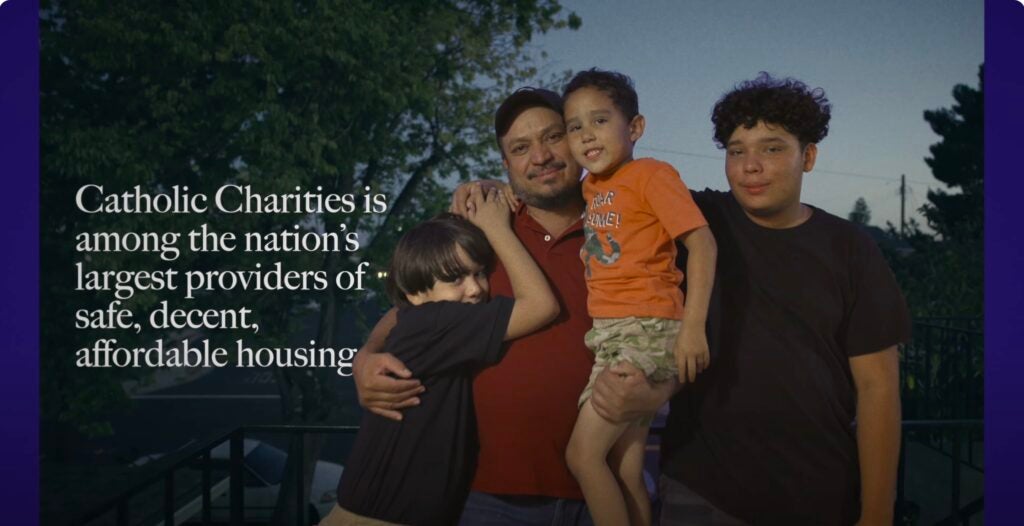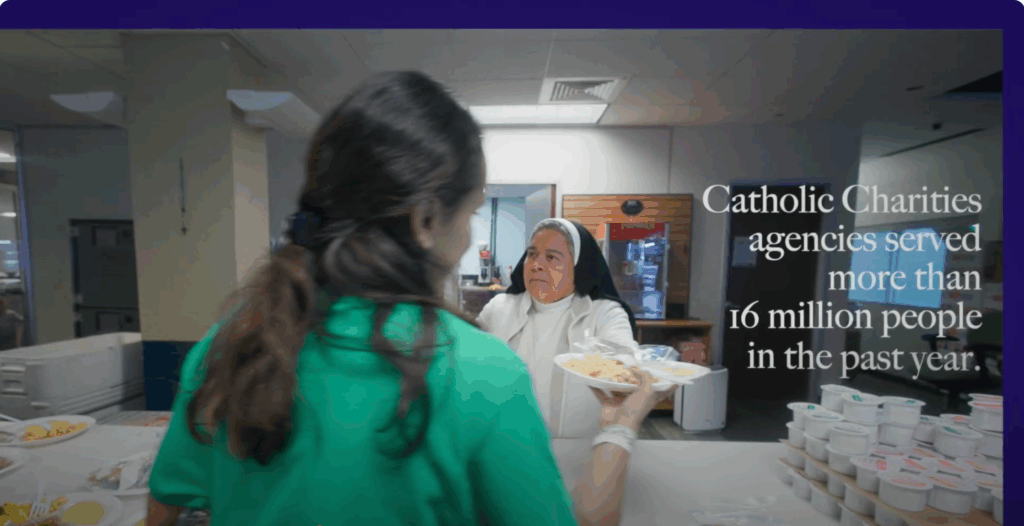

In 2012, in response to the tragedy of five youths dying by suicide, staff at Catholic Charities of the Archdiocese of Oklahoma City (CCAOKC) decided to establish a suicide prevention program for the community using a trauma-informed care approach.
Amy Shipman, director of counseling, and Aimee Ryan, director of social work, were part of the committee that created the Cabrini Wellness Ministry, to target youth suicide in the Catholic community.
Both Shipman and Ryan were a part of CCAOKC’s response to the suicides. “That was a period when we were out in the schools five times within a six-month period doing crisis work,” Shipman remembered. “We just stopped after it was all done and said, OK, we’ve got to do something different than what we’re doing now.”
With the support of the archdiocese and Catholic Charities, Shipman and Ryan were part of a team of professionals who would develop the effort as a community to prevent suicides. “Really, we wanted to provide training to lay people, those who may not have any mental health background, just so that they could recognize the signs and symptoms,” Shipman said.
Once formed, the committee contacted the Oklahoma Department of Mental Health and Substance Abuse Services and learned that there were already some models for suicide prevention. With a grant from SAMHSA (Substance Abuse and Mental Health Administration), Shipman and Ryan were trained in two models: QPR and mental health first aid (MHFA).
QPR, which stands for “Question, Persuade and Refer,” is a one-hour training that can be provided to anybody over 18. Like CPR, QPR is designed to give immediate, emergency aid until professionals can be engaged. QPR trains a person to ask the difficult question about suicide if someone shows suicidal signs, to persuade the person to get help and to refer the person to a mental health provider.
MHFA training builds upon QPR and is more substantive. The course is eight hours and includes in-depth training about specific warning signs and how to intervene when someone is in a crisis. It also has a youth-focused model. Like QPR, MHFA training is provided to people who do not have a mental health background. The objective is to help people start a conversation, intervene when needed and know where to refer a person for professional support.
Shipman and Ryan were trained in both models, and they have been conducting their own trainings in and around Oklahoma City since 2013. So far they have trained more than 2,000 people in QPR and 322 in MHFA.
“From the beginning,” Ryan said, “we recognized that there are parts we can all play. That’s what is behind QPR and MHFA: building teams that are all trained and know where the resources are. Having different players really is what makes a stronger community and can help in suicide prevention.”
Shipman and Ryan hope that by sharing the models of suicide prevention, they can contribute to not only lessening the instances of suicide but also understanding better its causes. They noted that the Catholic Church has evolved in how it expresses its teaching on suicide. Whereas an older expression assumed damnation and did not allow a funeral, the Church now considers the role of mental issues and God’s grace.
The wider community in Oklahoma City is also evolving in its understanding of suicide and its causes, thanks to the trainings provided by Shipman and Ryan. They help participants move away from seeing people on a “suicide spectrum.” One is either blessed and never had a mental health problem or one is doomed and will be plagued for the rest of his or her life.
“We’re trying to help participants see that it’s more typical for people to cycle through stressful times,” Ryan said. “Research shows that with the right support most people in a crisis go on to live happy, productive lives and many never have a mental health crisis again.”
Shipman and Ryan are encouraged by the reception QPR and MHFA have received in their community. They credit the success to good models and an open door policy. With QPR and MHFA, they did not have to reinvent the wheel, but rather were able to implement well-researched, evidence-based practices. The aim of the open door policy is simply to be available to anyone who needs help.
“We tell people, any time you have a question or if there’s a crisis and you don’t know what to do, call our office. Let us provide guidance for you.” Shipman said. “We can try to walk you through it and get you the resources you need. We want people to feel supported.”
Learn more about the counseling services of CCAOKC.








